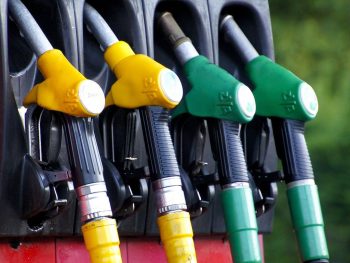Chancellor says no decision yet on 23% hike in fuel duty
The Chancellor has responded to backlash over a potential 23% hike in fuel duty next spring, insisting no decision has been made yet.

The rise would mark a record cash increase, adding 12p to a litre of fuel
The rise would mark a record cash increase, adding 12p to a litre of fuel and £5.7bn to government coffers, but bringing further pain for drivers amid the cost-of-living crisis.
While Hunt had made no mention of a rise in his Autumn Statement on Thursday, the Office for Budget Responsibility documents released after the announcement forecasted the rise as the result of the current 5p duty cut coming to an end, combined with a scheduled rise in fuel duty based on the fiscal watchdog’s forecast for inflation for April next year. The increase would be confirmed by the Government in the Spring Budget.
Speaking today to the BBC, the Chancellor said that the rise wasn’t government policy and added that the Treasury would decide whether to increase the tax in its 2023 Spring Budget.
He added: “That was just an assumption that the OBR made. They’re an independent organisation, they make assumptions, and we have made no decision on that at all.
“What I’m saying is, we have not made a decision and the time we make that decision is at the Spring Budget.”
It would be the first time that any government has raised fuel duty in cash terms since 1 January 2011, due to duty being frozen in successive Budgets. It’s meant to rise each year in line with the RPI rate of inflation.
RAC head of roads policy Nicholas Lyes: “The Government has always made a big deal of cancelling duty rises in the past and will face colossal pressure to do the same next year – after all, a rise of these proportions would heap yet more misery on the millions of households that depend on their vehicles, most of whom will have just endured one of the costliest winters on record.”
The RAC also reiterated the need for the Government to give “serious thought” to developing a fair taxation system that can eventually replace fuel duty, which is “effectively on borrowed time”. While yesterday’s Autumn Statement has addressed the falling tax-take from EV drivers currently not paying Vehicle Excise Duty, such drivers still don’t pay fuel duty.
RAC research suggests drivers broadly support road pricing on the principle of ‘the more you drive, the more tax you should pay’. More than a third (36%) said a ‘pay-per-mile’ system would be fairer than the current regime – although three-quarters (75%) are concerned the Government would use such a system as a way of increasing the amount they are taxed.
Trade body Logistics UK has warned that the fuel duty increase would be a “body blow” to the industry if introduced, as well as stifling the economy.
David Wells, chief executive, said: “With businesses already under financial pressure, and operating on very narrow margins, a duty hike of this magnitude would have significant impacts, for operating costs and, ultimately, on inflation.”
He also expressed alarm that a proposal of such significance was not discussed in the Chancellor’s fiscal statement made in the House of Commons earlier yesterday – and said it indicated the Government was hoping to avoid scrutiny on the topic.
“We are seeking urgent clarification as to whether the duty rise will be implemented as planned, as a rise of this magnitude would have a detrimental effect on the UK’s economy, stifling activity and placing unnecessary pressure on a sector deemed ‘essential’ only a year ago.”
And Nick Caller, UK MD of leasing and fleet management specialist Holman, has called for the Government to confirm its position immediately.
“Fleets cannot operate or plan with such a huge potential cost hanging over them. An extra 12p per litre of duty on top of already exorbitant fuel bills would, undoubtedly have a major impact on all UK businesses and indeed risk the sustainability of a number of those that rely heavily on fuel to operate,” he stated.
However, a Treasury spokesperson has reiterated Jeremy Hunt’s comments to the BBC, saying no decision has been taken yet about the rate of fuel duty from April.
They added: “It is wrong to suggest it will definitely rise by 12p – the OBR simply includes a standard assumption in their forecasts.
“We will announce the fuel duty rates for next year in due course.”
The OBR also commented, saying: “Our forecasts are required to reflect current government policy, which is that fuel duty will increase in line with RPI inflation in April next year (11.5%), and that the 12-month 5p reduction announced in March expires at the same time.”












